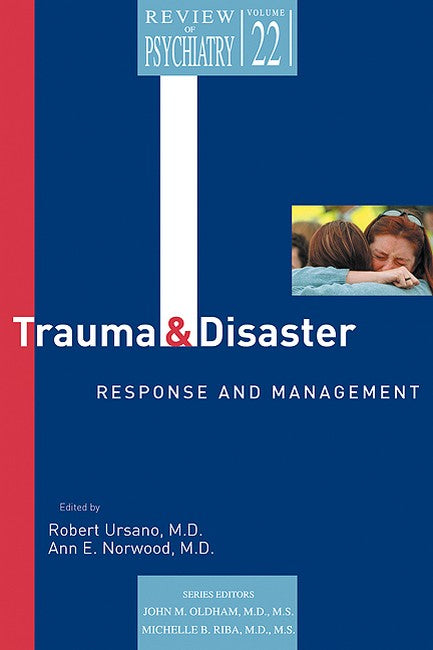In our increasingly dangerous world - brought into urgent focus by the September 11th attacks - the need to manage the psychiatic consequences of traumatic events and disasters has never been greater. The editors of this reference summarize our current understanding of the complex psychological, behavioural, and social responses to disaster, and present a case for intensifying our focus on delivery and intervention efforts. After a discussion of neurobiological and neuroanatomic responses to severe traumatic events, chapter two focuses on the psychiatric epidemiology of disasters, presenting a guide for clinicians in identifying and following groups at high risk of developing psychiatric disorders and an empirical blueprint for developing community interventions. Chapter three focuses on the impact of traumatic stressors on children, debunking the myth that children are more resilient than adults. Chapter four discusses the psyhological interventions following mass violence. Chapter five presents the special dilemmas posed by weapons of mass destruction and offers recommendations on how nations can enhance preparedness against these novel weapons.

